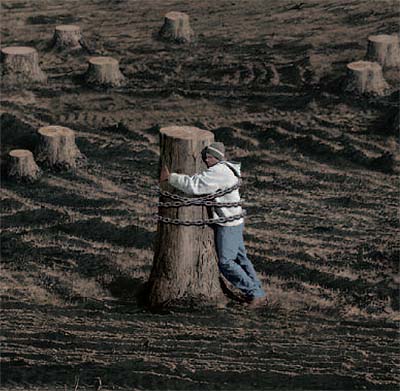My wife and I are big fans of Cornell Hockey.
We have had season tickets at Lynah Rink since my third year of graduate school. We just put our check in the mail to renew our two seats in Section H, Row 2, Seats 7 and 8. They are right behind the goalie (over his right shoulder) on the closed end of the arena. The games are exciting and we enjoy everything about them: from the hot dogs and hot cocoa to the stick salute after the games to senior night to newspaper shaking and students chanting to flying fish and for the good friends we have made in our section.
And for 18 games per year, the total price for two tickets, roughly $650, is a serious bargain (especially compared to professional alternatives). Add in the time we spend driving and parking at the game, plus snacks, and we easily surpass $1,000 per year on Cornell Hockey.
When we do this, we have decided that the $1,000 we spend on hockey each year, a frivolous indulgence in leisure, is more important than saving another acre of trees in the Northern Forest (depending on the area, an acre of forest can be had for even less than that). So, while even I run around claiming that conserved space and woodlands are extremely valuable (priceless?) resources, I implicitly put a very low value on it all the time.
 Does this make me morally bankrupt? Some would argue so; but it is a verifiable fact that the overwhelming majority of people focus on their own wishes and desires first, even those who have tendencies toward selflessness and altruism and saving the environment. Some would argue that revealed preference doesn’t matter … and that some form of irrationality made me purchase hockey tickets instead of saving more forest acreage. But then that irrationality must be pretty pervasive, so much so that it must then become rational to be irrational, no? After all, I will always purchase food and shelter before doing a darn thing for the Northern Forests. Always.
Does this make me morally bankrupt? Some would argue so; but it is a verifiable fact that the overwhelming majority of people focus on their own wishes and desires first, even those who have tendencies toward selflessness and altruism and saving the environment. Some would argue that revealed preference doesn’t matter … and that some form of irrationality made me purchase hockey tickets instead of saving more forest acreage. But then that irrationality must be pretty pervasive, so much so that it must then become rational to be irrational, no? After all, I will always purchase food and shelter before doing a darn thing for the Northern Forests. Always.